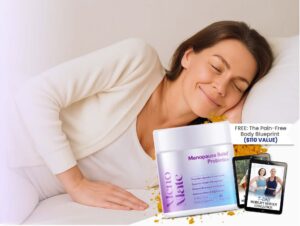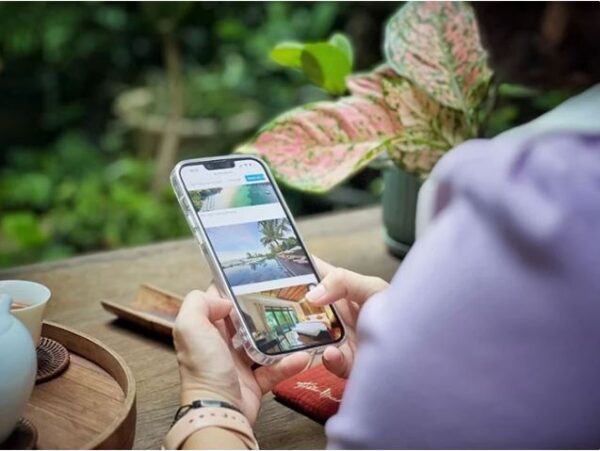Skin care products are supposed to protect you from blue light. But is that true?
The use of phones and electronic devices makes many people, especially women, concerned about the harmful effects of blue light on their skin.
Many sources of information claim that blue light has become an enemy of women’s skin in recent years. Skin care products are therefore produced to combat these agents.
But are those products really effective or are they just marketing for sales purposes? Let’s consider the following aspects:
What is blue light?
Blue light can lead to premature aging.
Ultraviolet (UV) rays come mainly from sunlight, with wavelengths ranging from 280-400 nanometers. Blue light emitted from phones and electronic devices is also in the electromagnetic spectrum.
The difference is that blue light is visible, because it has a wave range of 450-495 nanometers, while UV rays are invisible.
“The sun is the main source of blue light,” says cosmetic dermatologist Dr. Connie Yang. But phone, TV, and computer screens are also devices that produce blue light.”
How can blue light affect the skin?
“Recent studies show that visible light (ranging from 400-700 nanometers), can increase skin pigmentation,” says dermatologist Dr. David Kim.
“There is evidence that blue-violet light (wavelength 415 nanometers) increases skin pigmentation more than red light (630 nanometers). Another study also showed that blue light causes redness and hyperpigmentation in Fitzpatrick skin type 3 and above,” Dr. Kim added.
Dermatologist Dr. Hamdan Adbullah Hamed commented that blue light can lead to premature aging: “They produce reactive oxygen species, which cause oxidation and lead to premature aging, with wrinkles and Pigmentation appears uneven”.
However, he also “revealed” that blue light has some positive applications, mainly for treating skin conditions such as acne and pre-cancerous cells through oxidation.
According to The Zoe Report, the blue light emitted from mobile devices is similar to the blue light emitted by LED masks (often used to treat acne). Blue light is also used to treat eczema and psoriasis.
Do we really need to protect our skin from electronic devices?
Experts agree that protecting your skin from electronic devices is essential.
“If you have to regularly sit in front of a computer screen, skin care is very important. You can invest in anti-blue light glasses to protect your eyes from damage,” Dr. Hamed advised.
Is SPF sunscreen enough to protect against blue light?
Dr. Kim suggests that UV filters in sunscreens provide protection primarily from UVA/UVB rays. But this filter has no effect on blue light.
Ingredients protect against blue light
According to experts, if you decide to use products that protect against blue light, you should look for certain ingredients:
Antioxidants: Look for Vitamins C and E, green tea and blueberry extracts, all of which contain high levels of polyphenols (antioxidant plant compounds).
Niacinamide (Vitamin B3): “This substance can help reduce stress and damage caused by blue light, especially when combined with polyphenols” – Dr. Kim said.
Licochalcone A: According to Dr. Kim, this is a component of licorice extract. It has been shown to protect against blue light.
Iron oxides: Often used in mineral sunscreens for color, these have been shown to protect against blue light, especially when combined with zinc and titanium dioxide.












